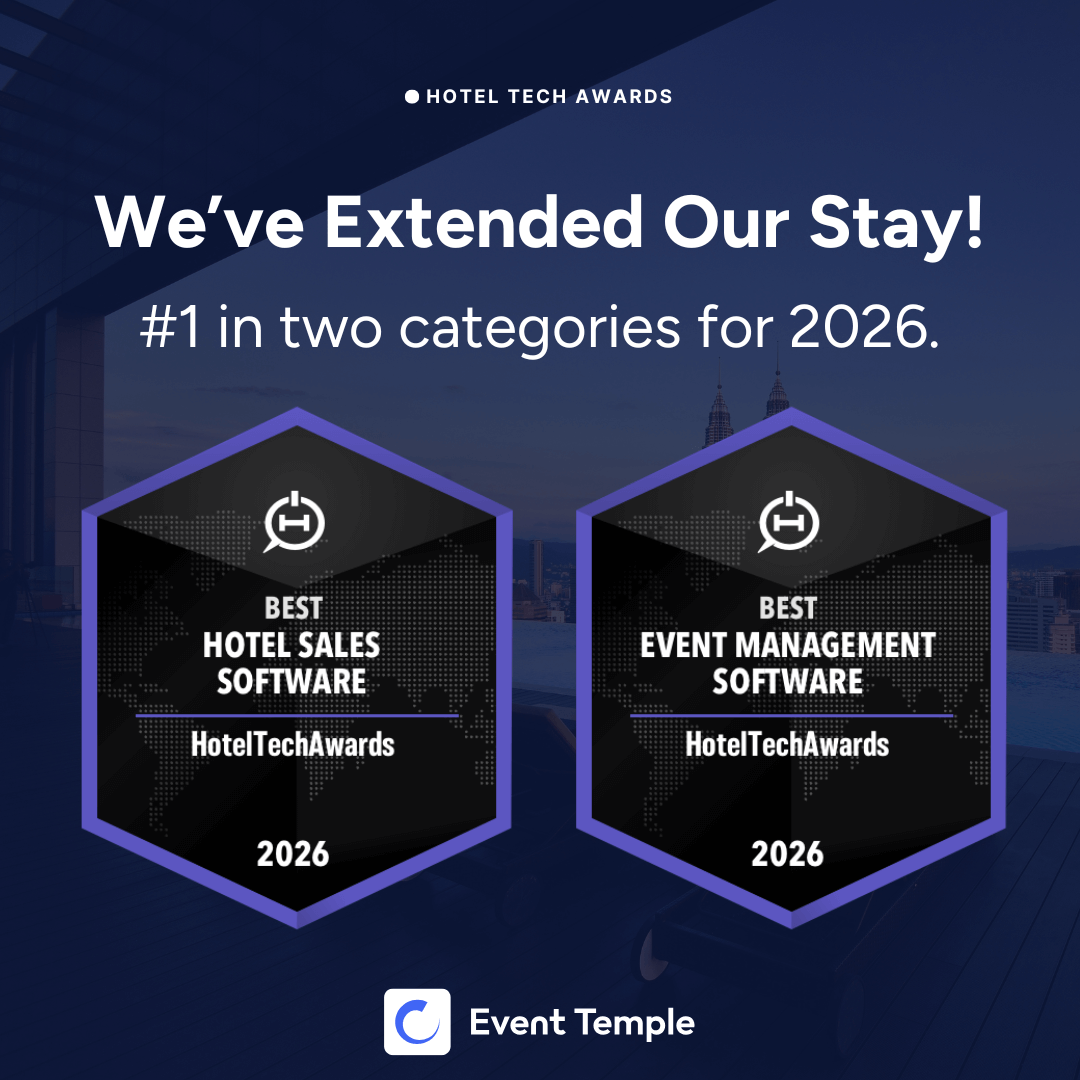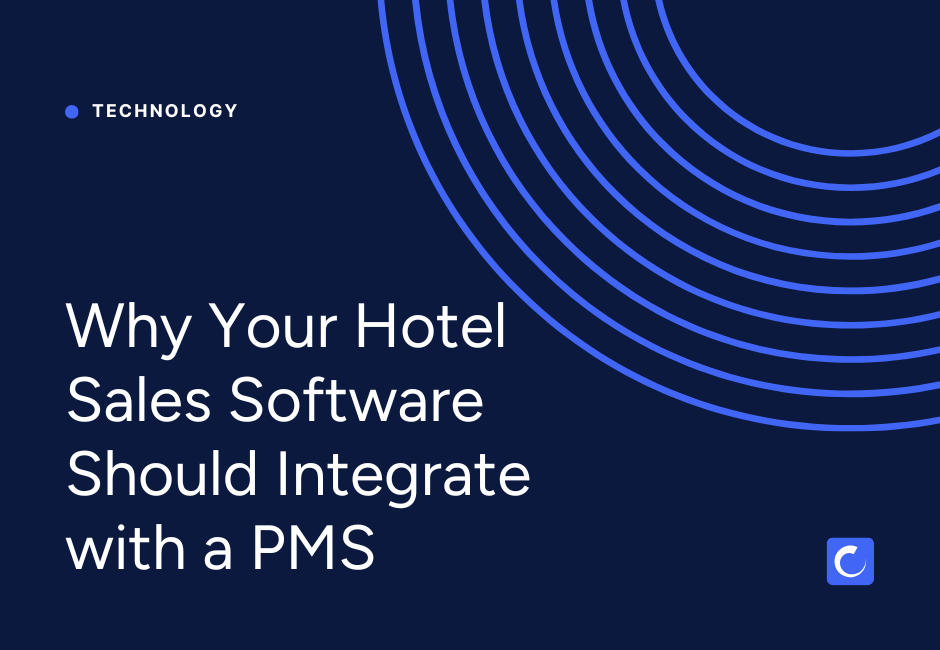
Guest Post By: Raphael Simcic, SUM Hospitality
It is more expensive not to change the software than to change it! According to surveys, the majority of hotels rely on hotel systems that have been outdated for years. Few people are aware that this only supposedly saves costs. It is clear that outdated systems have a negative impact on the hotel. There are outdated thought patterns, complex processes and reduced flexibility to respond to future challenges. Fears and worries about the change often predominate among hotel operators. However, these must under no circumstances become a brake on innovation. In this blog we show the advantages of changing hotel software.
Why do hotels need to regularly renew their systems?
Changing hotel software is often a long process. Before a ball gets rolling, the urgency must first be apparent. This is often not recognized because the low costs of the old systems, the usual processes and the fear of huge expenditure and data loss often push hotel management into a certain complacency. This tendency not only hinders innovation, but also brings significant disadvantages to operational processes, which in turn results in a lot of hidden costs.
Since hotel technologies have changed significantly in recent years and have become much more user-friendly and cost-effective thanks to cloud software, this topic not only affects large and chain hotels, but also a country inn or a 10-room boutique hotel. Small individual and owner-managed hotels in particular rely on significant innovations in the digital area. Due to the small business structure, these hotels are much more exposed to today’s and future challenges. A system change, like the monthly menu change in the restaurant, is one of the constant tasks of Hôteliers and Hôtelières. The most difficult thing is not the effort, the costs or the know-how, but rather the fact that many people find it difficult to get involved with new products and processes. This is why change management is fundamental.
Which software should hotels change?
Server-based systems have long been a thing of the past. However, the penetration of cloud technology in the hotel industry is not very advanced. The cloud is now standard in most industries. That’s why it’s clear to the hotel industry that some progress needs to be made here. Furthermore, hotels should create an overview of what work needs to be done every day and what can either be eliminated or automated. The mentality that often prevails is “I’ll quickly do this and that and that…”. This clearly shows that numerous processes are carried out in between, but without awareness. This takes an extremely long time and can often be automated.
Often the cause lies in the Property Management System (PMS), as this is the central hotel management tool. It could also be that the systems are great, but it is due to the connectivity. That the systems do not have an API and therefore do not communicate or only have a one-way interface. From the channel manager to the restaurant cash register: numerous systems can be the cause of an inadequate tech stack (here is the blog in which we have put together an overview of the numerous hotel software) . It is worthwhile to regularly deal with the processes associated with a particular system. We have written in this article how an evaluation and a change can be made .
How can hotels benefit from new software?
Process optimization thanks to digitalization
Software significantly determines the administrative processes. Depending on which system is in use, certain things are recorded automatically or manually. An internal case study shows that a PMS change can save around 52% of the time that the front office staff in a 20-room house needs for their daily work. In this case, this is 240 hours per year, which quickly amounts to 8,000 to 14,000 EUR. Most of the savings come from improved interfaces that automatically transmit availability, prices, guest data, internal numbers and transactions. Then comes improved handling such as fewer clicks until the necessary steps are completed, automated offers instead of Word documents and easier communication thanks to chat/WhatsApp instead of formal emails. Other points include internal communication via app instead of lists and phone calls, as well as improved readability of the data. Most hotels work with numerous manual processes that add little value and can be automated using the simplest means.
More time for the guests
Thanks to improved processes, hotels are able to manage their time better. Many small hotels that are only run by 1-2 people often underestimate the administrative effort that they could save and that they would rather devote to the guests. Of course, this also applies to larger houses. Not only can the staff enjoy reduced routine work, but the guests also benefit from the fact that they don’t have to go through any bureaucracy with unnecessary registration forms when checking in, but are greeted personally by the staff and immediately invited to a welcome drink.
Digital guest experience
Guests constantly use their smartphones in everyday life. People pay, order, post, tweet, google, etc. online. It is therefore clear that hotels also have to follow this trend and address the digital needs of their guests. Digital guest experiencesstart with booking and continue along the guest journey until after the stay. Thanks to digitalization, hotels can create a special experience at numerous touchpoints. This ranges from the individualized booking engine, to the guest web app, in which everything related to the stay can be taken care of, to mobile room keys, smart-controlled lighting, temperature control in the room and personalized surprise offers. The data required for this is required for every reservation anyway. However, these are usually stored insufficiently and unstructured as continuous text or on paper (more on this here ). There are numerous systems for this such as a CRM, CMS, upselling tool or infotainment systems, which focus on guest experiences. Through such an experience, hotels are able to offer added value thanks to the additional service.
Improved communication
There is less and less communication using postal mail. The situation is similar with emails. Most people use WhatsApp, Signal, Threema or other instant messengers. The fact that hotels cannot be reached via these channels irritates many guests. Communication with hotels must be just as easy as in private life. In addition, hotels benefit from chat-based communication, as it is faster, shorter and less formal and can be supported by a bot.
But improved communication also takes place in other areas: apps and automated tasks are much easier to work with than with lists and telephones. For example, if housekeeping has an app on which all to-dos can be seen and which can also be marked as “done”, some departments save a lot of work and the likelihood of misunderstandings and unclear communication is minimized. Another advantage is that employee tools can be used to digitally map numerous processes and make them much clearer and more agile.
The entire area of inspiration before booking or after stay processing also needs to be taken into account. These days, images and videos are a must on the website and social media. Communication via paper flyers or similar is a thing of the past. Campaign tools or social media planners essentially improve communication here. And a regular change can be advantageous, as new channels often emerge that also need to be used.
More flexibility
API is now standard in the hotel industry . Modern systems offer an open and standardized interface to which practically all systems can be connected within a few minutes. This enables much greater flexibility and independence from individual system providers, as systems can be exchanged very easily. This makes it much easier to test a system for free and you only have to make a decision when you are sure that everything really works as desired. If the system does not develop in this direction as desired, an exchange is associated with very low costs and effort. With the large and well-known “Platzhisch” hotel software, this is an impossibility. The costs, the waiting time and the lack of opportunity to leave the old structure are extremely hindering in such projects.
Another advantage is that cloud-based systems are usually billed with monthly license fees or subscription costs. This makes hotels independent of major investments that first have to be amortized over years. For this reason too, it is much easier to swap one hotel software for another, as only the notice period has to be adhered to and the implementation costs are low or non-existent. Of course, setup efforts and implementation difficulties are still to be expected, but we are no longer talking about years-long processes that have to be planned extremely meticulously. This increases flexibility quite a bit.
Better way to respond to the shortage of skilled workers
Young people spend a lot of time on social media and numerous other mobile apps every day. On the user side, modern systems are much more aligned with the look and feel of everyday web applications. For this reason, it can be particularly attractive for younger employees if modern and contemporary software is used. For many people, an attractively designed workplace with state-of-the-art applications is more interesting than a medieval-looking system landscape. Hotels can use such resources to address the shortage of skilled workers .
The hotel and catering industry still thrives on human qualities such as hospitality. Digital transformation does not replace these qualities, which means that people in hotels cannot be completely eliminated. However, digital tools enable new possibilities when it comes to more flexible deployment of staff in times of stress. For example, digital ordering in the restaurant, a chatbot or online check-in can be offered as a voluntary option. For the staff, this means that they are exposed to fewer stressful situations and thus a more attractive workplace is created. In addition, it is possible that in times when there is little staff available, the guest service does not have to be stopped completely.
Better ability to respond to new challenges
Similar to the shortage of skilled workers, the situation also applies to challenges such as energy shortages, climate crises or pandemic situations. Smart cloud software, for example, enables more efficient energy control in hotels, which can save electricity or heating energy. Even in pandemic situations, contactless guest services can continue operations.
There are therefore numerous advantages that clearly show that sticking with old systems leads to considerable additional costs compared to switching to a newer solution, even if it means additional short-term effort and a certain risk. To keep the business competitive, it is important that not just the usual 10% of the industry engage in development, but that as many hotels as possible rethink their position.
Sources:
HTR – Too many outdated solutions
Hoteltech report – HotelTech Trends 2022
HGU – Using digitalization to offer guests something special
Hoteltechreport – What is an API?



